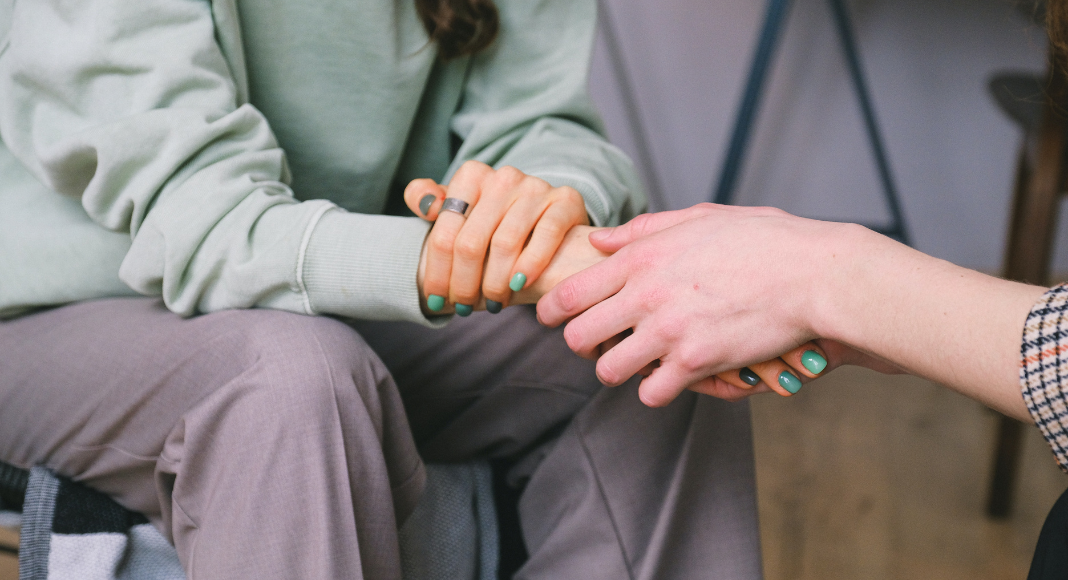
Perhaps I’m showing my age here, but I remember a time when therapy was taboo.
Maybe in some contexts this is still true, but by and large our society has come a long way over the last decade or so from mental health being a shameful subject to something that is discussed openly, candidly, and in many cases, with a great deal of compassion. We are seeing the research, the evidence, and the results and collectively choosing health and wholeness, and America, I just gotta say, I’m dang proud of us.
When I was diagnosed with anxiety and started therapy 5ish years ago, I thought I was pretty smart, I just needed someone to help me find the root of this mess so I could fix it and move on with my life. I remember saying that to my counselor in one of our first sessions, and he gently laughed and said, “Well, that’s not really how it works.” I’m sure I raised an eyebrow at that, but as it turns out, he was right.
Therapy, to me, is best described by quoting Olaf in Frozen 2, “Controlling what you can when things feel out of control.”
It teaches us to recognize our emotions, trauma, memories, triggers, and more, and the ways those factors contribute to our perceptions and reactions. When we know why we do or think or feel certain things, we can more effectively choose our next steps – indulge me one more Frozen 2 reference – and “do the next right thing.” Even though I went to therapy to solve a problem (well, turns out there are quite a few…) within myself, it shouldn’t come as a surprise that I have learned a lot about parenting in the process.
Here are five (of many!) parenting lessons I have gleaned from my 5 years of therapy, in no particular order:
- I am not responsible for other people’s emotions, actions, or happiness — even my children. This comes up frequently now that my children are older: when they were toddlers, they cried because their milk was in the blue cup instead of the green one, and that’s no emotional sweat for me. Now, though, they cry over a breakup, that they didn’t make the team, because they were bullied — sometimes by me. When they experience difficult emotions, I wish I could just tickle them until they laugh and forget it like we used to, but what I’m really looking for is an escape for the both of us. However, I cannot bear the burden of managing their inner lives, and doing so deprives them of the opportunity to learn those skills for themselves. It is my responsibility to do the right thing, model integrity, humbly apologize when needed, and be present to sit with them in their emotions. But it is not my responsibility to make it go away. Sitting with our feelings and processing pain is just part of being human.
- Everything in life requires choices, choosing to prioritize one thing over another. Saying no to one thing in order to say yes to something else will disappoint some people, sometimes the people I love most. However, doing the right thing is worth facing that disappointment in order to set the example of priorities. This is anything from dropping my crying baby off at daycare so I can go to work, to letting my kid get a zero on the homework he left at home because I won’t bring it to him, to suffering teenage rage when I tell her she can’t go out tonight because her dad and I have a date and she has to babysit. I don’t like for people to be upset at all, especially upset with me, but this goes back to lesson #1: I have to make healthy, responsible choices, and shifting my life around to make everyone feel good is nothing but a fast track to burnout.
- There was a phase in my therapy when I would spend the majority of my sessions talking about my family. It would start as, “What’s on your mind today?” and I proceed to talk about everyone else’s problems and how I am worried about them. It didn’t take long for my counselor to point out that I was using my family as a distraction from dealing with myself. I mean, it was what was on my mind, but spending so much mental and emotional energy taking care of other people left little time or energy for taking care of me. It is so so so so common for women to do this, and that has sparked a lot of conversation around self-care recently. But bubble baths and manicures don’t do any good if I’m not taking time to be alone with myself and honest about what I see.
- Forgiveness and healing doesn’t mean the pain goes away, it just means we make room for it. I have spent a lot of life preaching forgiveness, touting resilience, and even creating what one counselor called “pleasant fictions,” possible scenarios that may or may not be true in order to make sense of why someone hurt me. I thought if I could just let it go (wow, I can’t get away from Frozen) then I wouldn’t feel so badly, but it turns out I wasn’t processing emotions, I was just stuffing them. And buried emotions have a nasty habit of bursting out at very inconvenient times. Acknowledging, processing, even understanding why hurt happened doesn’t necessarily take the pain away, but it does allow us to make healthy decisions about where to go from here. In addition, accepting the reality of our pain does not detract from the beauty and joy of whatever comes after or even as a result of that. We can experience beautiful freedom after a messy divorce, enjoy the precious rainbow babies that come after miscarriage, find belonging in new friendships when old ones fall apart. We can experience a myriad of emotions at the same time, none of which are mutually exclusive, all of which are worthy of feeling.
- I don’t have to believe everything I think, nor must I dwell on or analyze every thought I have. This is tough for an overthinker like me, but actually my kids’ therapist gave me a great metaphor that I use all the time: Imagine your brain is a dinner party, and all your thoughts are the guests. As you move about the room, it is natural to mingle with everyone, even people you don’t really like, but ultimately you want to find your friends and spend your time with people who feel safe. If you look across the room and see someone you can’t stand — maybe a toxic relative, a painful memory, or negative self-talk — it is important that you acknowledge them; if you ignore their existence, you will be caught unaware when you run into them later and may have an unpleasant reaction. But when you make note of their presence, you can walk by, say hello (because you are a polite party host, of course), and then quickly move on to find your friends, the thoughts that bring you joy and reassurance. If you spend your whole party talking to someone who just brings you down and don’t look around for your friends, you’ll be utterly miserable. The same is true when we allow ourselves to focus on negative thoughts rather than training our brains for positivity.
There are plenty of other lessons I have learned and am still learning, and I’m so thankful for the professionals who have helped me along the way. May our collective openness regarding mental health make us a kinder, gentler, more caring society, and better parents to boot!




















Those are helpful. And liberating. Thanks.